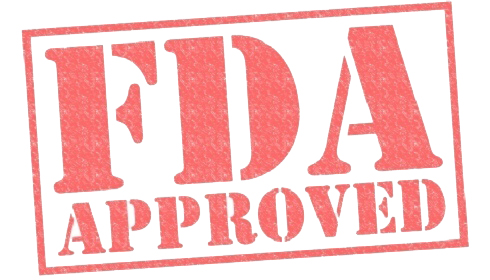
FDA Grants Priority Review to Dizal's New Lung Cancer Drug Sunvozertinib
Dizal, a Shanghai-based biopharmaceutical business, has reported a significant milestone in cancer treatment. The United States Food and Drug Administration (FDA) has accepted and awarded priority evaluation to sunvozertinib, an oral epidermal growth factor receptor (EGFR) inhibitor. These medicines are for people whose non-small cell lung cancer (NSCLC) has spread or become locally advanced after platinum-based chemotherapy. They have EGFR exon 20 insertion mutations (exon20ins). This represents a possible breakthrough for cancer patients, particularly given the lack of available small molecule medicines for such mutations in the United States and Europe.
Dizal's scientists created Sunvozertinib, a novel, irreversible EGFR inhibitor. Because of how it's made, it can target a wide range of EGFR mutations while still only targeting wild-type EGFR. This ensures minimal harm to healthy cells. In August 2023, China's National Medical Products Administration (NMPA) approved this medication for the treatment of advanced NSCLC with EGFR exon20ins following chemotherapy. The approval in China was based on the findings of the WU-KONG6 research, which showed the drug's efficacy in patients who had received platinum-based chemotherapy. Sunvozertinib seems to work well against a number of different types of EGFR mutations, such as sensitising mutations, the T790M mutation, uncommon mutations like G719X and L861Q, and HER2 exon20ins.
The FDA's decision to award priority review highlights sunvozertinib's potential to improve NSCLC patient outcomes. Medication that significantly improves the treatment of critical diseases receives priority review. This status indicates that the FDA intends to finish its evaluation in a shorter time frame than the regular review procedure, potentially speeding the drug's availability to patients in need.
Currently, NSCLC patients with EGFR exon 20ins mutations have few therapeutic options and a poor prognosis. The approval of sunvozertinib could drastically alter this scenario by delivering a simple and effective treatment. As an oral medication, it is easier to administer than standard intravenous chemotherapy, potentially increasing patients' quality of life. Sunvozertinib has a tolerable safety profile in clinical trials, with the majority of treatment-related side effects being mild to moderate and clinically treatable.
Dizal's NDA submission is based on results from the global WU-KONG1 Part B trial. This important study looked at how well and safely sunvozertinib worked in people with NSCLC who had EGFR exon20ins and lived in Asia, Europe, North America, and South America. The findings, reported at the 2024 American Society of Therapeutic Oncology (ASCO) Annual Meeting, demonstrated statistically significant therapeutic advantages, increasing the argument for approval.
Dizal's CEO, Dr. Xiaolin Zhang, emphasised the significance of this regulatory milestone. According to Dr. Zhang, NSCLC patients with EGFR exon20ins urgently require better therapy choices. He stated that if approved, sunvozertinib might become a global answer to this unmet medical need. The company's emphasis on discovering new treatments for cancer and immunological illnesses demonstrates its dedication to advancing medical knowledge and improving patient outcomes.
Sunvozertinib has received breakthrough therapy designations from the FDA for both treatment-naïve and relapsed patients, highlighting its potential. These designations aim to accelerate the development of medications that significantly outperform current treatments. If sunvozertinib wins full FDA approval, it will join the ranks of revolutionary treatments that have transformed cancer care.
Sunvozertinib provides hope to thousands of NSCLC patients worldwide who now have few therapy alternatives. Given its demonstrated effectiveness, favourable safety profile, and potential for regulatory approval in the United States, this medication has the potential to revolutionise the treatment of lung cancer. The global oncology community is eagerly awaiting the FDA's final judgement, which might usher in a new era in the treatment of complicated lung malignancies.